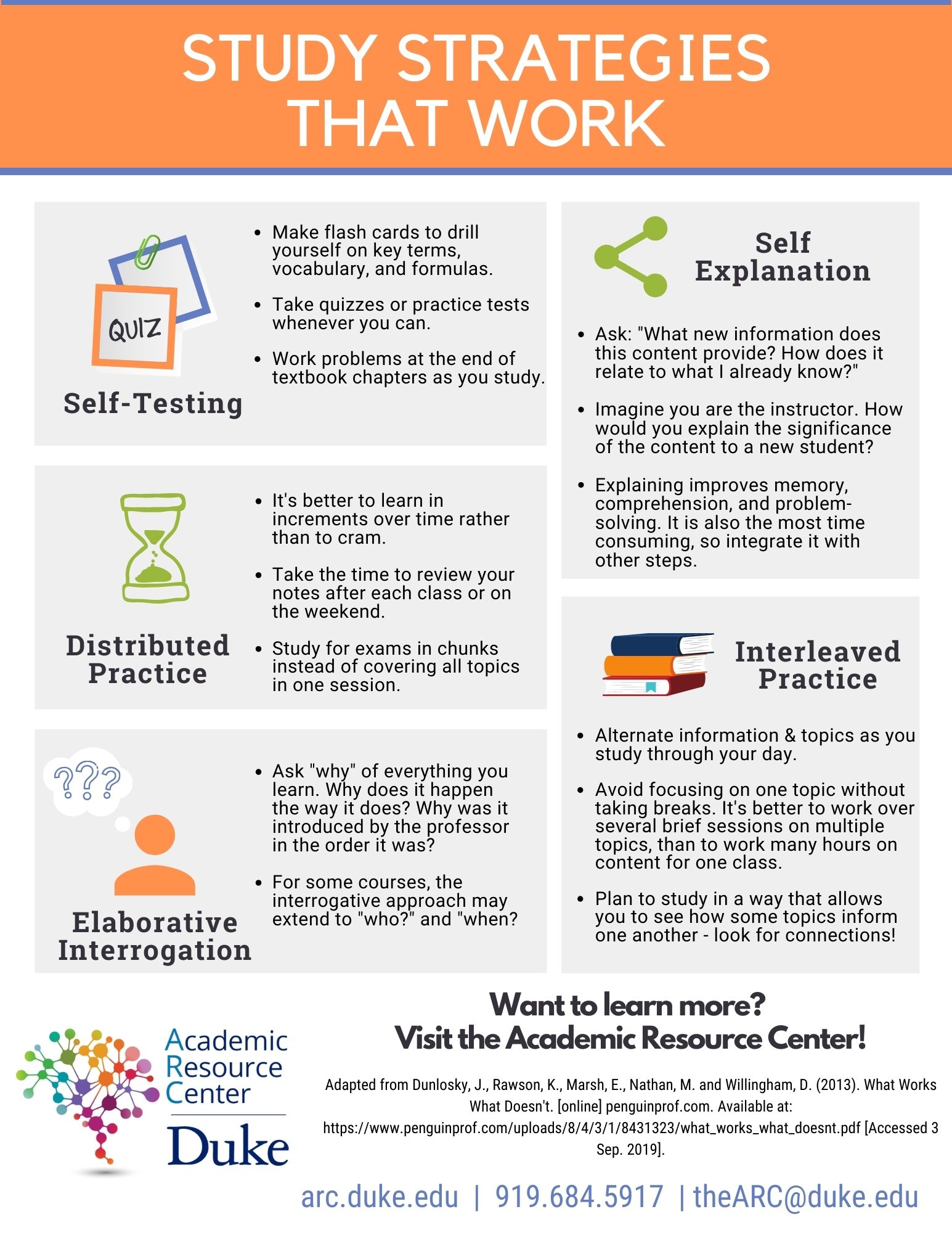
Self-testing (Quiz yourself)
- Make flashcards to drill yourself on key terms, vocabulary, and formulas.
- Take quizzes or practice tests whenever you can.
- Work problems at the end of textbook chapters as you study.
Distributed practice (Spread your study over time)
- It is better to learn in increments over time rather than attempt to cram content into your brain a few days or the night before a test.
- Take the time to review notes after each class or on the weekend. This is studying that goes above and beyond homework and it requires discipline.
- Study for exams in chunks as opposed to covering all topics in one session.
Elaborative interrogation (Be inquisitive – ask why)
- Ask “Why?” of everything you learn. Why does it happen the way it does? Why was it introduced by the professor in the order it was with regards to other content?
- For some courses, this interrogative approach may extend to “Who?” and “When?”
- Be thorough. Imagine you have to teach this content to a curious child.
Self-explanation (Explain what you learn)
- Ask yourself, “What new information does this content provide me, and how does it relate towhat I already know?”
- This approach above all others improves memory, comprehension and problem-solving. It is also the most time-consuming, so it should be done as part of the other steps as well.
- Imagine you are the instructor. How would you explain the significance of the content to a new student?
Interleaved practice (Mix apples and oranges)
- Alternate information or topics being studied through your day.
- Avoid focusing on one topic without taking breaks. It is better to work over several brief sessions on multiple topics than to slog through content for one class over many hours.
- Plan to study in a manner that allows you to see how some topics inform one another

